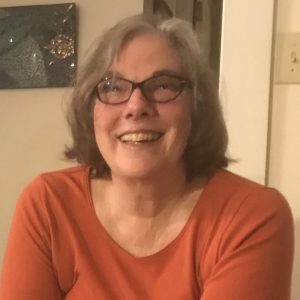Inner Easter is the process of finding, knowing, and becoming yourself through an intimate feeling of the Easter Mysteries as they unfold between Maundy Thursday and Easter Sunday.
Each of the four days, I will send a message with a list of most, not all, of the events of each day with a suggestion of how the event can be experienced as a self-reflective, self-developing question living in your inner life.
Choose one of the events (please keep it to just one, so you can go deep) and work with my suggested question, or better yet, feel your own question. Just a few minutes of reflection will waken a feeling for the inner festival.
Maundy Thursday is full of events in the Easter unfolding. The inner experience of the events is quite challenging and can lead your soul into a very troubled state. Even as I wrote them I felt a growing doubt and fear. This troubling of your soul carries you into the darkness of Good Friday. Can you endure your inner suffering today, tomorrow and Saturday knowing the joy of inner resurrection will come on Sunday?
This layer upon layer of dark and cold sadness falling over our souls only appears for this brief period in the inner year. How profound that it comes at the beginning of Spring which fills us with the joy of nature, beauty, and new life.
Let us begin this sacred and profound inner experience with the complexity of Maundy Thursday. Remember, working deeply with just one Maundy Thursday event… contemplating, wondering, reflecting and writing about your inner quest to find your own expression of it will awaken your soul.
Maundy Thursday’s Unfolding Events
The Preparation of the Upper Room
How do you prepare your body, mind, and spirit for your deep inner work?
The Gathering of the Companions
Who would you gather to share your last meal with? Would you invite even those who shape the dark, frightening aspects of your destiny? Make a list of twelve.
The Washing of the Feet
In your inner life, how do you humbly meet the images of your friends and colleagues? What feelings arise in your heart when you imagine washing the feet of those who have so deeply impacted your life?
The Transubstantiation of the Bread and Wine – Remembrance and Gratitude
If you look back at your life, what have you done or demonstrated that you would ask others to do in remembrance of your incarnation? The bread and wine are the first Eucharist. Eucharist has Greek roots for beautiful gratitude. How do others’ deeds live on in your deeds?
The Walk to the Mount of Olives and the Agony in the Garden of Gethsemane
Imagine slowly walking with your companions to a place of dramatic nature where you will live your last free moments. Are you able to look into the cup of your suffering, pray to be released and then surrender to your destiny? This is so challenging as it is so easy to feel like a powerless victim.
The Sleeping Companions
When have you asked those who love you to stay awake while you suffer only to discover they have fallen asleep? Do you forgive them?
The Betrayal and Arrest
Have you been betrayed? Have you been a betrayer? Keeping yourself settled in your body and in the moment, calmly look at the betrayal with compassion. If betrayed, how did this lead to some powerful fulfillment in your life? If betraying, how did it feel to see the other suffer? Did you make amends or did you fall into despair?
Has a key part of your soul been arrested and taken away from life as you have known it?
The Denial and Abandonment
Imagine knowing that those who were closest to you, were going to denial they knew you and flee from you? This is an inner question that might reveal how parts of you fail to strongly stand beside your gifts or your innocence.
Do you realize how these questions are universal and yet the answers or responses are utterly individual revealing the I dwelling within humanity. Esoterically, this is not about a dogma or a belief system, it is about finding, knowing, and becoming I over a fragile lifetime.


This is wonderful – and exactly what I need in my inbox this morning ! I do realize these are universal questions and forwarded the email to a friend of mine. I will work on one question today but will reserve the rest to use one each month and ponder over – I love this – thank you so much for your time and effort – I am still gong over Inner Christmas – reviewing one each month as well – I keep getting more and more understanding each time I go back !
We come into the world remembering who we are – but we quickly “fall asleep” when our True Nature is not seen and held. We suffer when we are not seen – by others who are asleep. We start to identify as the wounded one and forget we are the innocent one who experienced the wounding. We’ve all wounded others in our sleep by not beholding their True Nature. We believe their defensive strategy is who they are.
Jesus never forgot who he was, despite how horribly he was treated. Jesus saw the True Nature of his oppressors – albeit covered over by their outer behaviors. Therefore he forgave, for they “know not what they do.”
In waking up, I don’t regress to the innocence of the newborn baby. I recognize that all the strategies I used in service of my own survival and protection have developed in me capacities to move through the world, remembering who I am – and beholding who others are.